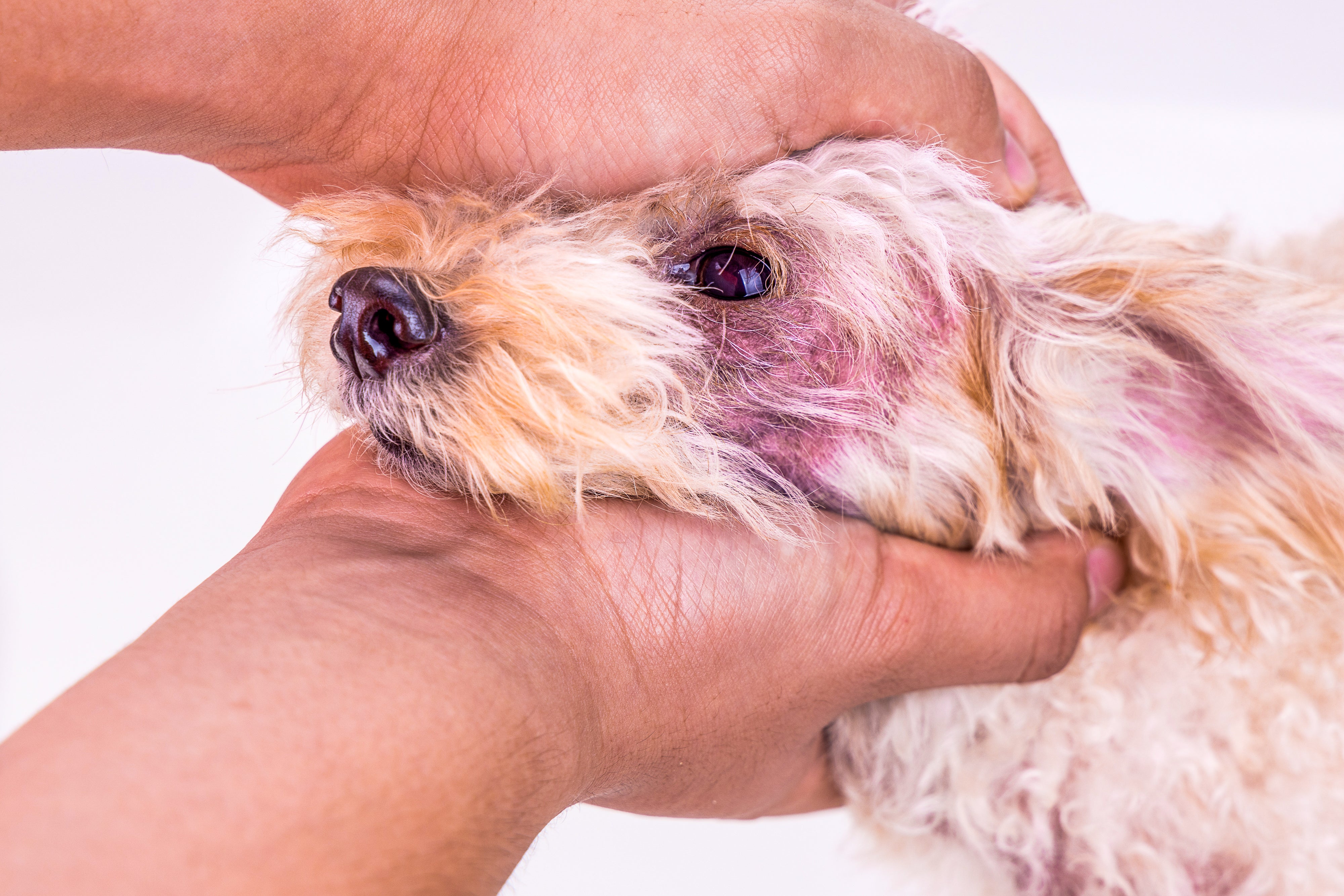Yes, your dog may have nasal mites if it is experiencing symptoms like sneezing, nasal discharge, and reverse sneezing. Nasal mites, also known as Pneumonyssoides caninum, are tiny parasites that can infest the nasal passages of dogs, causing irritation and discomfort.
These mites can be easily transmitted from one dog to another through close contact or shared bedding. If you suspect that your dog may have nasal mites, it is crucial to seek veterinary care to confirm the diagnosis and begin appropriate treatment.
Prompt treatment can help alleviate the symptoms and prevent further complications.
**Signs Of Nasal Mites In Dogs**
Nasal mites can be a major concern for dog owners. If your dog is snorting or scratching its nose in a reverse motion, it could be a sign of nasal mites. Additionally, frequent sneezing or coughing may indicate the presence of these tiny parasites.
Another symptom is nasal discharge or nosebleeds, which can be distressing for your beloved pet. If you notice any of these signs, it’s essential to consult a veterinarian. They can accurately diagnose nasal mites through various tests. Treatment options may include specific medications to eliminate the mites and relief from symptoms.
Remember to stay vigilant and seek prompt medical attention to help ensure your dog’s well-being. Regular check-ups with your vet will also help in detecting and preventing any potential health issues.
**Behavioral Changes In Dogs With Nasal Mites**
Behavioral changes in dogs with nasal mites may include excessive head shaking or rubbing the face, prolonged pawing at the nose, and decreased appetite or weight loss. These symptoms can indicate the presence of nasal mites, microscopic parasites that infest the nasal passages of dogs.
Nasal mites can cause discomfort and irritation, leading to changes in behavior. If you notice your dog exhibiting any of these signs, it is important to consult with your veterinarian for a proper diagnosis and treatment plan. Early detection and intervention can help alleviate your dog’s discomfort and prevent further complications.
Regular check-ups and proper hygiene practices can also help prevent nasal mites and other parasites from affecting your furry friend’s overall well-being. Keep an eye out for these behavioral changes and take prompt action to ensure your dog’s health and happiness.
**Diagnostic Methods For Nasal Mites**
Dog owners often wonder if their canine companions have nasal mites. To diagnose this condition, a veterinary examination and physical assessment are key. These methods involve carefully observing the dog’s nose, throat, and respiratory system. Diagnostic imaging techniques, such as X-rays or CT scans, can also provide valuable insights.
Additionally, nasal endoscopy or rhinoscopy may be performed to directly visualize the nasal passages and check for mites or any abnormalities. These procedures are effective in detecting and confirming the presence of nasal mites in dogs. Veterinary professionals use their expertise to analyze the findings and provide appropriate treatment options for the affected dogs.
Early diagnosis and treatment are important in managing nasal mite infestations and ensuring the well-being of our furry friends.
**Treatment Options For Nasal Mites In Dogs**
Nasal mites in dogs are a common issue that can cause discomfort and health problems for your furry friend. Thankfully, there are various treatment options available. Medicinal treatment with antiparasitic drugs is an effective way to tackle the issue head-on.
These drugs help to eliminate the mites and relieve the symptoms. Topical therapies can also be used for localized infestations, providing targeted relief. Environmental and household management is crucial to prevent reinfestation. Regular cleaning and disinfecting of your dog’s bedding, toys, and surrounding areas is necessary to create a mite-free environment.
In conclusion, if you suspect that your dog has nasal mites, it is important to consult with your veterinarian to determine the best treatment plan for your furry friend. Remember, early detection and intervention can provide relief and improve your dog’s overall health and well-being.
**Preventive Measures For Nasal Mites**
Nasal mites, also known as nasal acariasis, can affect dogs and cause discomfort. Regular veterinary check-ups are essential to ensure early detection and prompt treatment. Maintaining hygiene and cleanliness in your dog’s living environment can help prevent mites from infesting their nasal passages.
Regularly cleaning bedding, toys, and the areas they spend most of their time in can reduce the risk of infestation. Additionally, avoiding contact with infected animals is crucial. If you suspect your dog has nasal mites, consult with a veterinarian for diagnosis and appropriate treatment options.
Remember, prevention is key in safeguarding your dog’s health and well-being.

Credit: peterdobias.com
Conclusion
If you suspect your dog may have nasal mites, it is crucial to seek veterinary attention promptly. These tiny parasites can cause discomfort and lead to serious health issues if left untreated. Remember to look out for symptoms such as sneezing, nasal discharge, and breathlessness, which might indicate the presence of nasal mites.
Additionally, regular cleaning and maintenance of your dog’s living areas can help prevent infestations. By implementing preventive measures and keeping a vigilant eye on your furry friend’s health, you can ensure their well-being and happiness. Consult with your veterinarian to establish a comprehensive treatment plan that will address nasal mite infestations and provide relief for your beloved pet.
Don’t hesitate to take action, as early detection and treatment can make all the difference in your dog’s quality of life.
